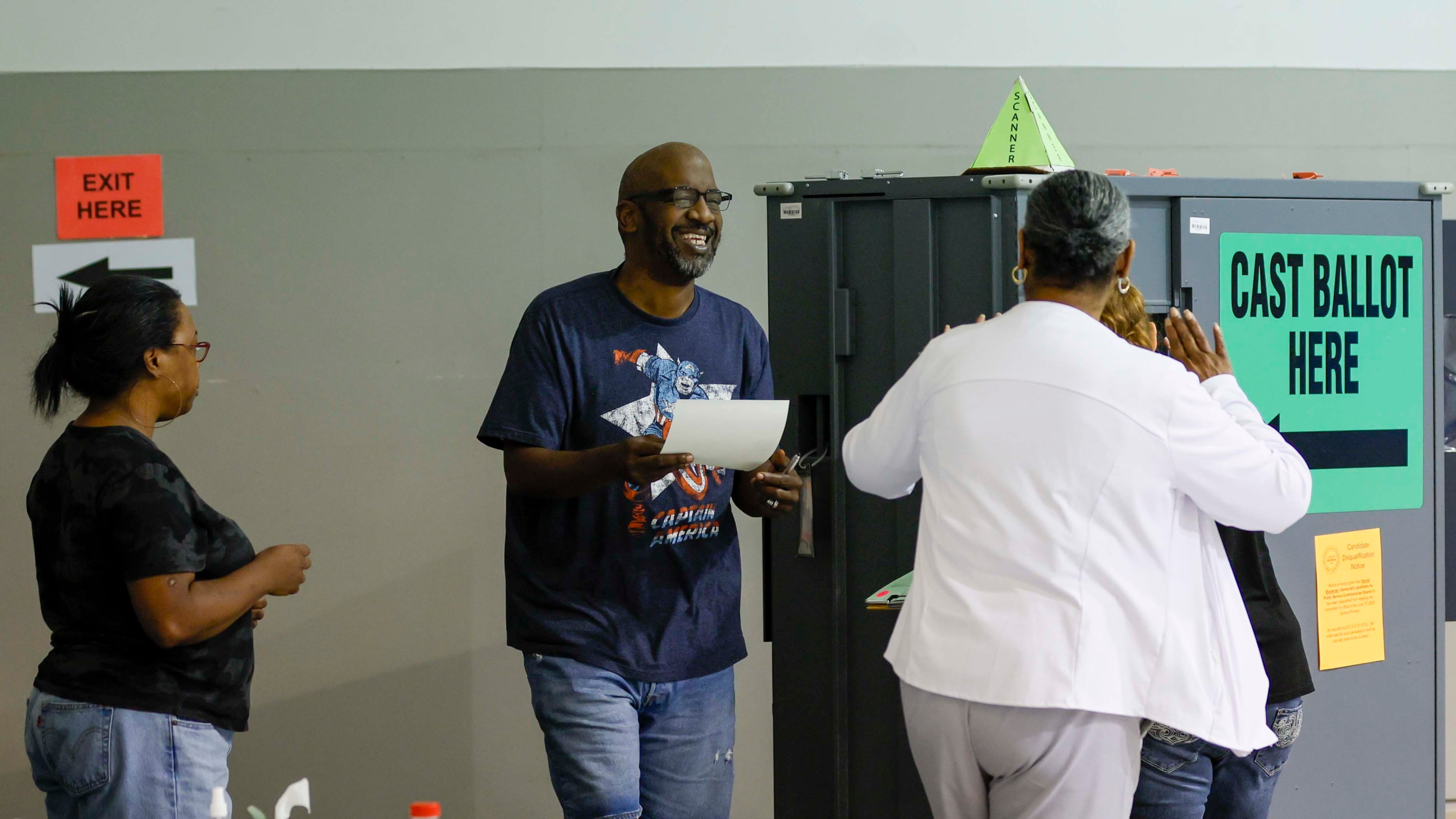Low turnout and high costs expected as early voting begins for PSC primary runoff

What if Georgia held an election and almost no one showed up?
Early voting begins Monday across Georgia for the Democratic primary runoff for Public Service Commission, but turnout is expected to be so low that many counties are closing polling places.
Seventy-seven of Georgia’s 159 counties are planning just one voting location on election day under a state law that allows closures after turnout falls below 1%.
Meanwhile, the statewide election will come with a significant cost to taxpayers. The price tag for the runoff could reach $100 per voter, according to an estimate by The Associated Press.
“It’s a lot of tax money for a low turnout,” said Catherine Hunnicutt, elections supervisor in Glascock County, a heavily Republican area where just five people voted in last month’s Democratic Party primary. “I get in there and handle the election just like normal. I wish we did have a larger turnout, but it is what it is.”
The runoff is required under Georgia law because none of the three candidates in the Democratic primary received a majority of votes.

Former Atlanta City Councilwoman Keisha Sean Waites faces Peter Hubbard, who founded a clean energy nonprofit called Georgia Center for Energy Solutions. The winner will face Republican incumbent Fitz Johnson in November’s general election.
While turnout is tiny — just 2.5% of Georgia’s 8.5 million registered voters voted in last month’s primary — the race could have a big impact.
The Public Service Commission sets power and gas rates that monopoly utility companies can charge. Residential bills for Georgia Power customers have risen about $43 per month since the start of 2023 because of rate increases approved by the PSC.
Many of the counties that have reduced voting locations are rural, Republican areas where few people turned out in the Democratic Party primary. Both Republican candidates, Johnson and incumbent Tim Echols, won their primaries without the need for a runoff.
But the polling place closures include some counties in the metro Atlanta area, such as Cherokee, Forsyth and Paulding counties.
Low turnout is caused by an election scheduled during the summer, in an odd-numbered year, for an office that many voters aren’t familiar with, said Travis Doss, president of the Georgia Association of Voter Registration and Election Officials.
“Not to disparage the PSC, but we knew going in it would be a very hard sell to get voters energized for this election,” Doss said. “It’s still a vital process to allow people to vote for their representatives. We just have to do the best we can with what we have.”
In Richmond County, where Doss is the elections director, the cost of the primary was about $40 for each of the nearly 4,000 voters, and turnout was 2.5%. That price could rise in the runoff if turnout declines further.
The PSC election is taking place now — rather than in a typical election year with other races on the ballot — because of a law passed by the Georgia General Assembly.
Legislators scheduled the election for this summer after PSC races had been canceled since 2022 in response to a federal lawsuit alleging that statewide elections for PSC candidates violated the Voting Rights Act, resulting in almost all-white representation on the commission.
Taxpayers could save a lot of money if Georgia eliminated the requirement for runoff elections, said Scot Turner, a Republican and former state representative.
While the statewide cost of the PSC runoff isn’t known because each county runs its own election, the U.S. Senate runoffs in early 2021 cost about $75 million, according to a study by Kennesaw State University researchers. This year’s runoff will cost less than the U.S. Senate runoff because early voting lasts only one week and fewer polling places will be staffed.
“It’s a travesty, in a very low turnout election, that one party’s primary runoff has to be funded by taxpayers so they can get their nominee when fewer than 1% of eligible voters are going to participate,” Turner said. “We’re having to pick between paying a police officer and running a party runoff. It’s absolutely ridiculous.”
Turner supports ranked choice voting instead of runoffs.
Under ranked choice voting, voters can rank several candidates in order of preference. If no candidate wins more than 50% of votes, the second-ranked candidate of voters who picked the last-place candidate are added to the remaining candidates’ total.
Both ranked choice voting — or a system where the candidate with a plurality of votes wins — would eliminate runoffs.
But the Georgia General Assembly hasn’t moved forward with either proposal. Legislative leaders have said they prefer requiring candidates to receive a majority of votes in a traditional election format.
How to vote in the Public Service Commission runoff
One week of early voting is available in every Georgia county from Monday to Friday. Election day is July 15.
All voters who participated in last month’s Democratic primary or didn’t vote in the primary are eligible to vote in the runoff. Voters who cast a ballot in the Republican primary aren’t allowed to vote in the Democratic runoff.
Voting locations and hours are available through the state’s My Voter Page at mvp.sos.ga.gov.



